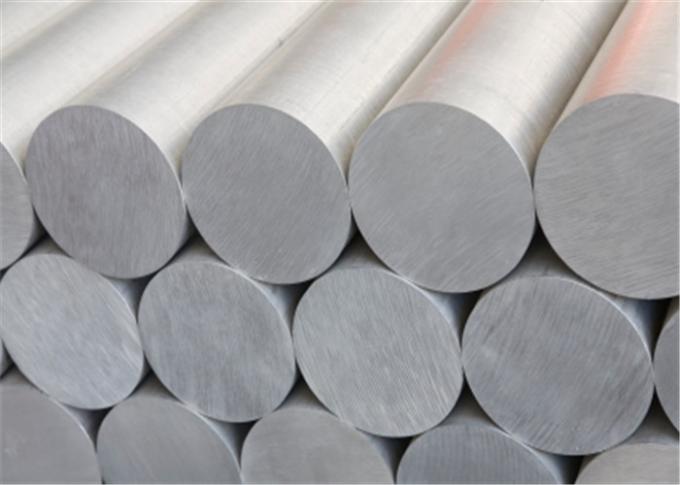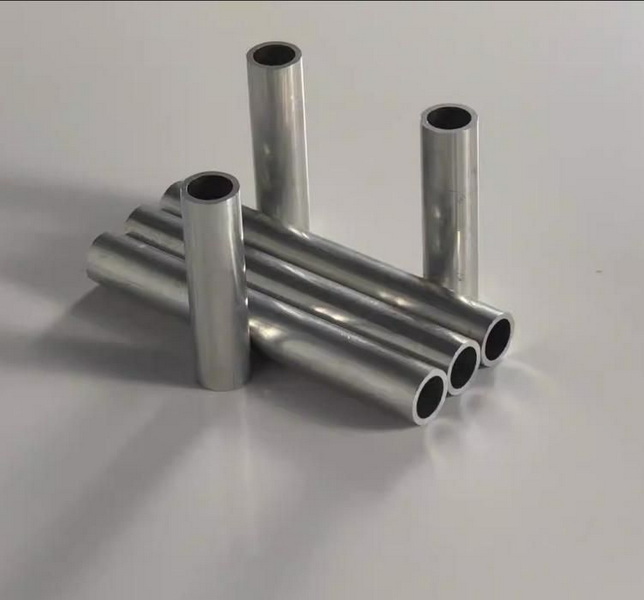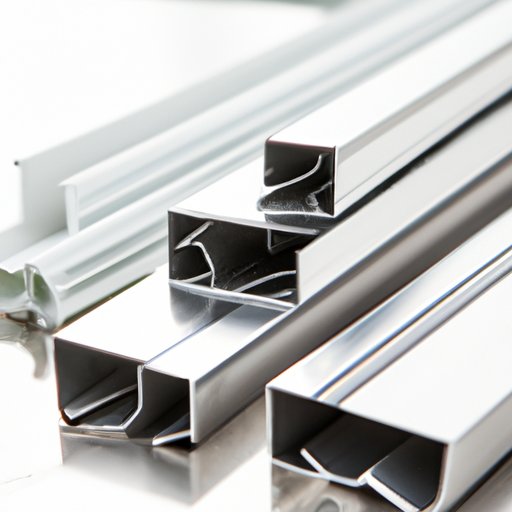Content Menu
● Understanding 6020 Aluminum Extrusion
>> Key Properties of 6020 Aluminum
● Applications of 6020 Aluminum Extrusion
>> 1. Construction and Architecture
>>> Benefits in Construction:
>> 2. Automotive Industry
>>> Key Applications in Automotive:
>> 3. Aerospace Industry
>>> Advantages in Aerospace:
>> 4. Industrial Applications
>>> Common Industrial Uses:
>> 5. Electronics and Electrical Applications
>>> Applications in Electronics:
>> 6. Furniture and Interior Design
>>> Benefits in Furniture Design:
>> 7. Marine Applications
>>> Key Marine Applications:
● Conclusion
● Frequently Asked Questions
>> 1. What are the main advantages of using 6020 aluminum extrusion?
>> 2. In which industries is 6020 aluminum extrusion commonly used?
>> 3. Can 6020 aluminum extrusion be welded?
>> 4. What is the typical yield strength of 6020 aluminum?
>> 5. How does 6020 aluminum extrusion compare to other aluminum alloys?
Aluminum extrusion is a manufacturing process that shapes aluminum alloy into a desired cross-sectional profile. Among the various aluminum alloys available, 6020 aluminum extrusion stands out due to its excellent mechanical properties, corrosion resistance, and versatility. This article explores the applications best suited for 6020 aluminum extrusion, highlighting its benefits and showcasing its use across different industries.

Understanding 6020 Aluminum Extrusion
6020 aluminum is a wrought alloy that belongs to the 6000 series of aluminum alloys. It is primarily composed of aluminum, magnesium, and silicon, which contribute to its strength and workability. The alloy is known for its good corrosion resistance, excellent weldability, and machinability, making it a popular choice for various applications.
Key Properties of 6020 Aluminum
- Strength: 6020 aluminum has a yield strength of approximately 240 MPa, making it suitable for structural applications.
- Corrosion Resistance: The alloy exhibits good resistance to atmospheric corrosion, which is essential for outdoor applications.
- Weldability: 6020 can be easily welded using various techniques, including MIG and TIG welding.
- Machinability: The alloy can be machined to precise tolerances, allowing for intricate designs and components.
Applications of 6020 Aluminum Extrusion
1. Construction and Architecture
One of the most significant applications of 6020 aluminum extrusion is in the construction and architectural sectors. The alloy is used to create structural components such as beams, columns, and frames. Its lightweight nature reduces the overall weight of structures, making it easier to transport and install.
Benefits in Construction:
- Lightweight: Reduces the load on foundations and supports.
- Durability: Offers long-lasting performance in various environmental conditions.
- Aesthetic Appeal: Can be anodized or painted to enhance visual appeal.
In modern architecture, aluminum extrusions are often used in curtain walls, window frames, and roofing systems. The ability to create complex shapes and profiles allows architects to design innovative structures that are both functional and visually appealing. Additionally, the use of aluminum helps meet sustainability goals by reducing the overall energy consumption of buildings.
2. Automotive Industry
The automotive industry has increasingly adopted aluminum extrusions, particularly 6020, for manufacturing lightweight components. The use of aluminum helps improve fuel efficiency by reducing vehicle weight without compromising safety.
Key Applications in Automotive:
- Chassis Components: Used in the construction of vehicle frames and chassis.
- Heat Exchangers: Ideal for manufacturing radiators and heat exchangers due to its thermal conductivity.
- Interior Parts: Used for trim and structural components within the vehicle.
As the automotive industry moves towards electric vehicles (EVs), the demand for lightweight materials like 6020 aluminum is expected to rise. The reduction in weight not only enhances the vehicle's range but also improves handling and performance. Furthermore, aluminum's recyclability aligns with the industry's sustainability initiatives.
3. Aerospace Industry
In the aerospace sector, weight reduction is critical for improving fuel efficiency and performance. 6020 aluminum extrusion is used in various aircraft components, including frames, supports, and interior fittings.
Advantages in Aerospace:
- High Strength-to-Weight Ratio: Essential for aircraft performance.
- Corrosion Resistance: Protects against harsh environmental conditions at high altitudes.
- Customizability: Can be extruded into complex shapes to meet specific design requirements.
The aerospace industry relies on 6020 aluminum for its ability to withstand extreme conditions while maintaining structural integrity. Components such as wing structures, fuselage frames, and landing gear often utilize this alloy due to its favorable properties. Additionally, the lightweight nature of aluminum contributes to overall fuel savings in commercial aviation.

4. Industrial Applications
6020 aluminum extrusion is widely used in various industrial applications, including manufacturing equipment, machinery, and structural frameworks. Its versatility allows it to be tailored for specific industrial needs.
Common Industrial Uses:
- Machine Frames: Provides a robust structure for machinery.
- Conveyor Systems: Used in the construction of conveyor frames and supports.
- Workstations: Ideal for building custom workstations and assembly lines.
In manufacturing environments, the modularity of aluminum extrusions allows for quick assembly and reconfiguration of production lines. This adaptability is crucial in industries that require frequent changes in layout or equipment. Furthermore, the lightweight nature of aluminum reduces the overall energy consumption of machinery, contributing to lower operational costs.
5. Electronics and Electrical Applications
The electronics industry utilizes 6020 aluminum extrusion for heat sinks, enclosures, and structural components in electronic devices. The alloy's thermal conductivity helps dissipate heat effectively, ensuring optimal performance of electronic components.
Applications in Electronics:
- Heat Sinks: Used to manage heat in electronic devices.
- Enclosures: Provides protection for sensitive electronic components.
- Mounting Frames: Supports various electronic assemblies.
As electronic devices become more compact and powerful, effective heat management is essential. 6020 aluminum extrusions are designed to maximize surface area for heat dissipation, ensuring that devices operate within safe temperature ranges. Additionally, the alloy's lightweight properties make it an ideal choice for portable electronics.
6. Furniture and Interior Design
In furniture design, 6020 aluminum extrusion is used to create modern, sleek designs. Its lightweight and durable nature makes it an excellent choice for various furniture applications, including tables, chairs, and shelving units.
Benefits in Furniture Design:
- Modern Aesthetic: Provides a contemporary look to furniture.
- Durability: Ensures long-lasting performance in high-use environments.
- Customization: Can be easily shaped and finished to meet design specifications.
Aluminum furniture is increasingly popular in both residential and commercial settings. The ability to create custom designs allows manufacturers to cater to specific customer preferences while maintaining the structural integrity of the products. Additionally, aluminum's resistance to corrosion and wear makes it suitable for outdoor furniture applications.
7. Marine Applications
The marine industry benefits from the corrosion resistance of 6020 aluminum extrusion, making it suitable for boat frames, railings, and other components exposed to harsh marine environments.
Key Marine Applications:
- Boat Frames: Lightweight and strong, ideal for boat construction.
- Railings and Supports: Provides safety and stability on vessels.
- Docking Systems: Used in the construction of docks and piers.
In marine applications, the ability of 6020 aluminum to withstand saltwater exposure without significant degradation is a major advantage. This property extends the lifespan of marine structures and reduces maintenance costs. Additionally, the lightweight nature of aluminum contributes to improved fuel efficiency in boats and yachts.
Conclusion
6020 aluminum extrusion is a versatile material that finds applications across various industries, including construction, automotive, aerospace, industrial, electronics, furniture, and marine. Its unique properties, such as strength, corrosion resistance, and lightweight nature, make it an ideal choice for many applications. As industries continue to seek lightweight and durable materials, the demand for 6020 aluminum extrusion is expected to grow.

Frequently Asked Questions
1. What are the main advantages of using 6020 aluminum extrusion?
The main advantages include its lightweight nature, excellent corrosion resistance, good weldability, and machinability, making it suitable for various applications.
2. In which industries is 6020 aluminum extrusion commonly used?
It is commonly used in construction, automotive, aerospace, industrial applications, electronics, furniture design, and marine applications.
3. Can 6020 aluminum extrusion be welded?
Yes, 6020 aluminum can be welded using various techniques, including MIG and TIG welding, making it suitable for structural applications.
4. What is the typical yield strength of 6020 aluminum?
The yield strength of 6020 aluminum is approximately 240 MPa, which provides good structural integrity for various applications.
5. How does 6020 aluminum extrusion compare to other aluminum alloys?
6020 aluminum offers a good balance of strength, corrosion resistance, and workability, making it a versatile choice compared to other alloys like 6061 and 6063.






















